All Available Episode
All Season 8 Episode
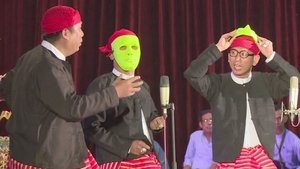
1. Democracy Through Laughter: Myanmar
For nearly half a century starting in 1962, Myanmar was under military rule. Criticism of the government was brutally suppressed. Political satire was the one of only voices citizens had to call for democracy. One person leading the satirical movement is Pan Thee. Political satire was once permitted in the country under the Burmese monarchy, but military rule turned even traditional satire into a target, forcing Pan Thee to flee abroad to continue his work. Even after the change in government of 2016, the army wields enormous political power in Myanmar. Pan Thee has returned home and is helping young performers make the call for true democracy. How have comedians used satire to drive a political movement? Trace Myanmar's route to democracy through laughter.

2. Emerging Youth Culture in Chengdu, China
China's western city of Chengdu is one of the nation's larger cities, but retains a uniquely low-key atmosphere that has made it a destination for those seeking a different way of life than in Beijing or Shanghai. In particular, its vibrant music and art scene encourages self-exploration by creating an environment of diverse genres without the pressure of productivity or commercial success. In this episode, we examine the motivations behind the new youth culture of Chengdu.

3. The Changing World Wholesale Market: Yiwu, China
Yiwu City became well known in the 2000's for its array of wholesale goods, and its reputation continued to grow as quality improved with China's economic growth. Now it serves not just as a center of Chinese goods, but the best the world has to offer as foreign sellers open their own shops in the area. In an atmosphere like an international trade show, merchants make bold ventures to bring together new connections and opportunities.
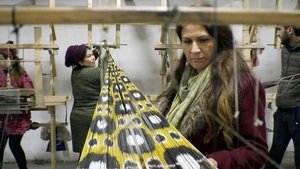
4. Reviving a Silk Road Tradition
Uzbekistan's capital Tashkent was once an oasis along the Silk Road. Today, local fashion workshop Bibi Hanum is creating items that use the patterns and crafts of ikat, a traditional woven fabric. Workshop founder and designer Muhayo Aliyeva works with the rural artisans who have kept the technique alive. She creates modern dresses and accessories as a way to convey the beauty of ikat to a wider audience. Aliyeva hopes to not only conserve traditional crafts, but to also increase female employment through her workshop and partners' studios. Follow Aliyeva as she works alongside local women to revive the traditions of the Silk Road.

5. The Change in China's Online Video Bloggers
KOLs, an abbreviation for "Key Opinion Leaders," are a growing presence in Chinese advertising, video bloggers, and promoters who connect new consumers with products by using the strength of their personal recommendations. Their influence has been so great that the Chinese government built an entire industrial village for bloggers on the outskirts of Wuhan City. In this episode we meet the men and women who generate hundreds of millions of dollars and immeasurable support with the strength of their opinions.

6. South Korean Youth Struggling for Work
South Korea is a country known worldwide for the intense competition among youth in the job market. Unemployment among young people hit a high in 2014, with little signs of improvement, motivating them to seek new strategies in pursuing their future. Some aspire to become civil servants, while others start their own companies or look for work abroad. In this episode, we speak with the young South Koreans who are attempting to find their own solutions in a job market where conventional methods have failed them.
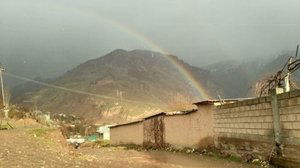
7. Marriage and Migrant Workers - Tajikistan
Domestic happiness in Tajikistan, Central Asia, once meant an arranged marriage and children. But in recent years, the custom is on the decline. One key factor is the massive rise in migrant workers, forced to move away to Russia because their own country has no industry. 40% of working-age Tajiks now work abroad. This makes it difficult for men to find a bride, and many wives end up abandoned when their husbands return alone to their jobs and lives abroad. Explore how marriage and labor are changing in Tajikistan.

8. Individuality and China's Unwed Women
In 2010, the term "Shen Nu" entered use as a negative label for Chinese women in their mid-20s or older who remained unmarried. A decade later, the first wave of so-called "Shen Nu" approaches middle age. Whether due to the expectations for career or family that were influenced by this era of prosperity, women in China who have not yet found a spouse are often subjected to scrutiny from friends and family. In this episode, we meet the women who contemplate marriage while striving to live with a sense of individuality.

9. Shanghai's "Children of the Stars" with ASD
Although it has been known for generations in the west, autism spectrum disorder (ASD) has just entered public awareness in China over the last decade. To help young people on the spectrum more actively engage with society, Cao Xiaoxia opened the Angel Salon in Shanghai, where youth with ASD can take part in activities such as serving coffee in a café setting, as well as performing and enjoying music. These pastimes are both educational and therapeutic, allowing the young people to open up and become more comfortable with social interaction.

10. Protecting Asian Elephants in Laos
70% of Laos was once covered in forests home to many elephants. People kept them as pets and used them to carry cargo and passengers, co-existing successfully. But starting in the 1960's, logging and illegal poaching for ivory soared and the elephant population has since dropped to just 800. The Elephant Conservation Center in Sainyabuli, northeastern Laos, is home to 29 elephants, all survivors of severe overwork in the logging industry. The center, led by Frenchman Sebastien Duffillot, runs a breeding program with the eventual goal of returning the elephants to the wild. Join Sebastien and his team as they work to protect the Asian elephant from extinction.

11. Guardians of Taiwan's Migrant Mothers
Over the past decade, Harmony Home, an NPO led by Nicole Yang, has offered refuge to more than 500 pregnant migrant workers and their children. The law in Taiwan prohibits employers from firing pregnant workers. Even so, fear of deportation leads many women to secretly give birth -- putting themselves and their babies in danger. Answering the call to help this vulnerable group of people, Harmony Home's support ranges from prenatal checkups to postnatal care. Yang has made it her mission to help raise and protect the children until their mothers can return to their homelands. In this episode, we follow the efforts of the NPO working in the shadows of Taiwanese society to help migrant mothers and their children.
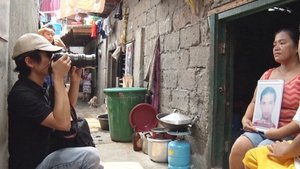
12. The "War on Drugs" in the Philippines
The election of President Duterte has seen increased police action to arrest those involved with sales and possession of illegal drugs in the Philippines. However, this "war on drugs" leaves behind an escalating body count of poor citizens who are killed supposedly resisting arrest. Freelance photographer Raffy Lerma has made it his mission to interview and photograph bereaved families, to show the nation the price of this purported justice. In this episode, we accompany Lerma to meet the families who have been swept into an urban war.

13. Let There Be Neon Light: Hong Kong
Neon signs are the sparkling jewels that light up the Hong Kong night sky. Signs for restaurants, shops, and hotels once jostled for space above sidewalks to create a unique cityscape. But in recent years, older signs are being removed out of fear they might fall. They've been replaced by cheaper and simpler LEDs, and up to 90% of the city's neon has vanished. Craftsman Wu Chi-kai has spent 35 years making these signs and now works with a preservation society to hold workshops and tours aimed at caring for the neon signs that remain.
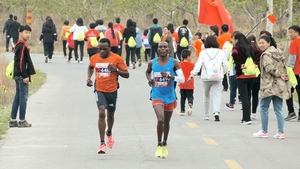
14. Running for Cash in China
In recent years, marathons held all over China have emerged as a new way to local regions to gather revenue. Contestants come not just from within China, but all over the world. In particular, African runners from countries like Ethiopia and Kenya are strong contenders. But the road to success is a rocky one: The contestants pay their own travel costs and an agent's fee. If they can't get the cash prize for a top-3 finish, they're likely to end up in debt. In this episode, we run with these African contestants aiming for prizes in China.
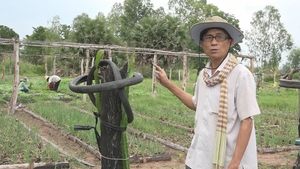
15. Growing Prosperity with Organic Farming - Cambodia
Cambodia's fast-growing economy has led to a construction boom that is drawing workers to Phnom Penh and other cities in search of jobs. However, the mass migration to urban areas has resulted in many farmers giving up agricultural work and abandoning farms. Aiming to restore pride and prosperity to rural areas, agricultural scientist Yang Saing Koma trains farmers how to grow organic food. Mixing modern and traditional methods, he shows how growing pesticide-free fruits and vegetables can put more cash in farmers pockets, while also meeting consumer demand for fresher and safer produce. In this episode of Asia Insight, we follow Koma's efforts to improve lives in rural Cambodia.

16. Fishing with Dolphins: Myanmar
The Irrawaddy River (also known as the Ayeyawady River) in Myanmar in the only place in the world where humans and dolphins fish side by side. Today, this unique tradition is in danger. Myanmar's economy has undergone rapid growth, and the river has become polluted, sending the dolphin population and their food sources into decline. Only 20 fishermen with the knowledge of this traditional fishing method remain. We follow seasoned fisherman Maung Lay as he works alongside the dolphins, and learn about the initiatives looking to preserve them.
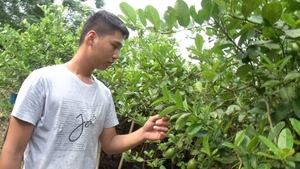
17. The Entrepreneurs Reenergizing China's Rural Communities
With a growing gap between rural and urban incomes, residents of China's farming communities have been steadily moving to the big cities, leading to widespread rural decline. Seeking to stem this tide are a new breed of local entrepreneurs - young, educated farmers turning to new technology and marketing methods in an effort to work smarter, and bring new efficiency to the produce business.

18. A New Esports Hub: Hong Kong
Fighting, racing, soccer, shooting: esports, or competitive gaming, is taking the world by storm. With around 130 million potential competitors, the industry is expected to be worth 3 billion US dollars within the next few years. In Hong Kong, partnerships between the public and private sector are looking to expand the scope of esports and turn the city into a local hub. One start-up has partnered with the government to build one of Asia's biggest dedicated esports facility, while one of Hong Kong's biggest conglomerates has begun hosting an esports event, even creating their own professional team. Meanwhile one private investor has opened an esports coaching school. Explore the world of professional gaming in Hong Kong.
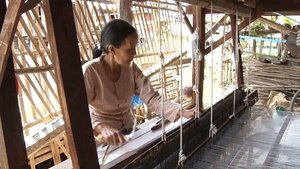
19. Homegrown Cotton for a Homegrown Brand: Myanmar
The ancient city of Bagan in central Myanmar was registered as a World Heritage Site in July 2019. The religious city is home to some 3,000 Buddhist pagodas and temples -- and now, a new clothing brand: "Cotton Bagan" is attracting attention from foreign visitors and local customers alike. 22-year-old Pyay Soe Hein founded the brand 2 years ago. The company uses locally grown cotton, woven, cut, and sewn by local artisans. He hopes to promote and encourage the country's textile industry by providing 100% Myanmar-made clothes. Discover how a young entrepreneur and his partners are making waves in this new market.

20. Performing Your Story in China
In July of 2018, a new theater group was formed in the southern Chinese city of Guangzhou. The subject of their performances is their own audience: Through improvisational theater, they express personal experiences suggested by the audience members, helping to give voices to the struggles of average people. However, they hit a major setback when a show was halted by the police, after which almost no theater would consent to renting them space. Now the group pushes on to find a new place in their home city, where they work to increase understanding and empathy among both loyal fans and new audience members.
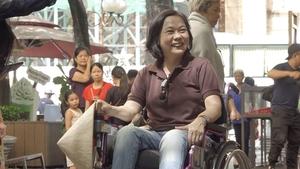
21. Opening Doors to Independence - Disabilities in Vietnam
Ho Chi Minh, Vietnam, is home to the Center for Disability Research and Capacity Development (DRD), an NGO led by Vo Thi Hoang Yen. As well as providing university scholarships and support for job-searching, Yen and her 13 staff are developing a digital map with detailed accessibility information for locations around Vietnam. Many people in Vietnam believe that people with disabilities are being punished for transgressions in a past life, leaving them marginalized and unable to find work. By encouraging Vietnam's disabled population to become independent, Yen and the DRD are looking to change Vietnam's attitude towards disability.
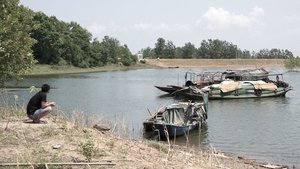
22. Changing Lives of Fishermen on the Yangtze River
China's Yangtze River has seen a decline in species due to pollution and overfishing, which the government responded to with a ban on industrial fishing. Although intended to improve the local environment, this measure had the side effect of taking away the livelihoods of the fishermen living around the river. Now, desperately seeking the means to support their families, some of the fishermen have begun utilizing their knowledge through conservationist work to preserve vulnerable species such as the finless porpoises of the Yangtze River.
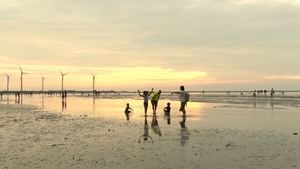
23. Hongkongers Seeking Freedom in Taiwan
In recent years, Hong Kong has seen an increase in demonstrations such as the Umbrella Movement, which protest the degree of control China wields over the region. Many of those involved in the movements or simply seeking a better way of life have chosen to relocate to Taiwan, which can protect their human rights with a democratic government. Despite their pride as Hongkongers, the new immigrants leave careers behind to hopefully gain freedom that will extend to their children's generation.
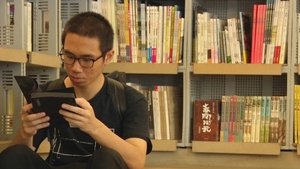
24. Taiwan's Bookstore Revolution
As bookstores around the world continue to dwindle in number among declining sales of physical books, Taiwan has been hit particularly hard: In 2012, two-thirds of all regions there lacked bookstores. But thanks to a government policy promoting small retailers, so-called "community bookstores" have begun to sprout up. Some include literary salons or cafes, while other have special concepts like trading local produce for books. All are places where paper books bring about new communication between people.

25. From Trash to Treasure: Indonesia
Surabaya, a city in Indonesia, runs a bus service that doesn't cost money to use. Instead, the fare is paid in plastic bottles. The goal is to promote waste reduction and recycling. 20 years ago, the city streets were overflowing with garbage, so the local government took action. They introduced a system to transform everyday kitchen waste into compost. They set up waste banks, where people can sell recyclables. We take a look at the incredible success of Surabaya's eco-friendly initiatives.
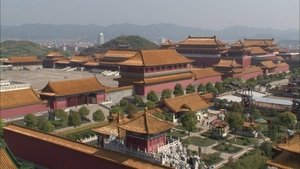
26. Extras in China: The Hengdian Drifters
Just like in any other country, Chinese youth dream of becoming famous actors, and many chase their dreams to Hengdian, a town that serves as a center of movie filming in the country. The jobs that await the vast majority are "extras," nonspeaking roles for just dollars a day, and barely enough to put food on the table. In this episode, we meet the thespians who have moved hundreds of miles only to be faced with the conflict of either abandoning their dream, or soldiering on as wordless members of the masses.

27. Fighting Transgender Discrimination - Thailand
Thailand has a reputation as a haven for transgender people. But the reality is that many continue to experience discrimination, forcing them to hide their sexual identities. Determined to change this situation, transgender people are taking action. Making use of the Gender Equality Act of 2015, they are winning access to jobs previously closed to them, along with the right to wear clothes that match their sexual identity. In this episode, we hear from transgender people standing up to discrimination in a changing society.

28. Homegrown Sustainable Forestry: Indonesia
Indonesia has lost around 30% of its forest coverage in the last 50 years, in part due to illegal logging. Since 2004, environmental NGO Telapak has worked with rainforest residents to curb this destruction. Locals have set up cooperatives to manage, fell and sell their own trees as part of a community logging initiative, providing a stable income that's higher than what illegal logging can pay. There are now 10 cooperatives around Indonesia totaling 7,000 members. We visit a 1,500-strong cooperative in central Java to discover how local forestry initiatives are helping residents protect the environment and earn a living.
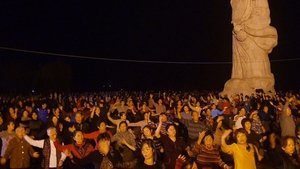
29. Forgotten Dancers
Since the early 2000's, a new pastime has skyrocketed in popularity among China's elderly, becoming a social phenomenon. Known there as "plaza dancing," those who gather in town squares for social dancing do so for various reasons, whether to gain a brief respite from caring for infirm parents, or to reclaim the dreams of their youth. Indeed, the square dance has put a new spring in the step of senior citizens across China.
